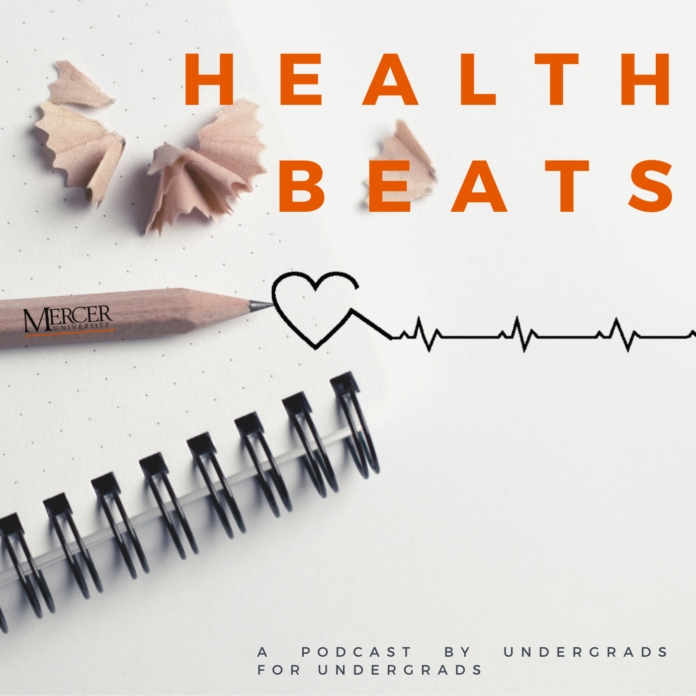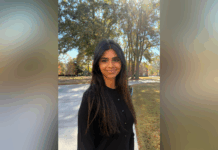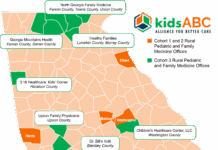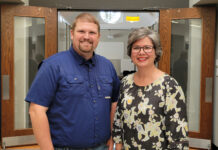Mercer University public health students can now add podcasting to their list of skills and experiences.
Twenty students in Dr. Gabrielle Darville’s PBH 405/Health Programming course recently published podcasts on a variety of health topics related to the Mercer community. Dr. Darville, assistant professor in the Department of Public Health, joined Mercer’s faculty in August and taught the course for the first time during the spring semester.
She and the other public health faculty did some brainstorming during a departmental meeting and decided to reformat PBH 405. They wanted to introduce students to another set of skills that would be beneficial to their future careers in the field, and the idea emerged to build the class around the creation of podcasts, Dr. Darville said.
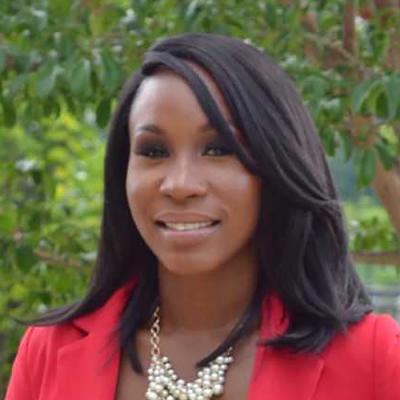
Much of the work public health professionals do revolves around educating the public, and that is often done through programming like workshops, interventions and even podcasts that teach different skills and raise awareness. Dr. Darville’s course focused on equipping students with the tools and insider’s information they needed to develop and create informative podcasts.
“With podcasting, because our audience members are becoming so diverse, we have to find innovative ways to meet them,” Dr. Darville said. “I’m excited that the students were willing to be the test group for this project. They exceeded my expectations. It’s a great project for the students to do.”
The class started with a needs assessment to select the audience, and the students decided to focus on their peers. They compiled a list of questions and surveyed their peers to gauge the most relevant health topics. The seven groups in the class then selected one of the health issues for their podcasts.
The students participated in workshops with a podcaster as well as with staff from Mercer Information Technology. In addition, a Mercer undergraduate student who makes podcasts created a video about narrative and script development and served as a resource for the class members.
The students researched their topics, reviewed literature related to them, critiqued programs that had already been implemented on the issues, and assessed podcasts of their choosing on the narrative, style, tone, delivery, message and effectiveness.
The groups developed scripts and provided feedback on the other groups’ scripts. Since they couldn’t meet in person as initially planned due to COVID-19, they recorded the audio through Zoom, and then one group member edited it.
The seven podcast episodes, all around 10 minutes long, are available on Soundcloud on a channel the class created called Health Beats. They address topics such as healthy relationships, coping through college, the importance of sleep, healthy eating habits and mental health. They range in approach and style, from an interview with an expert to reflections on personal experiences to more conversational pieces.
“I’ve always had an interest in health programming and how to communicate with the audiences that public health officials need to come across. Podcasting was something that I really looked forward to learning about,” said Lydia Kim, who just graduated with her bachelor’s degree in public health and wants to become a public health communication specialist. “This class is going to help me be creative when I have to form ideas about how to relay information across different platforms.”
She said her group created a conversational podcast on holistic health on campus. They wanted their piece to be informational but also relatable, so students would want to listen and learn more. Dr. Darville described their podcast as a sitcom-style narrative with musical interludes.
Mary Black Sullivan, an incoming senior majoring in public health, and her team discussed substance abuse in their podcast. Dr. Darville said they used research literature to do a comparative study of the issue.
“I really enjoyed it. I felt like we were able to complete a really nice podcast at the end of the class. I felt like we accomplished a lot,” Sullivan said.

